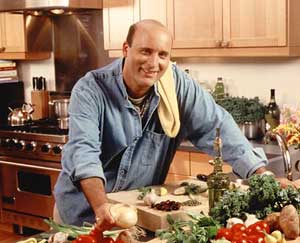Gluten Free
What does following a gluten-free diet mean? That you're embarking on an easy diet with a wide range of health-promoting effects. Instead of dwelling on what you’re giving up, consider that you’re going to enjoy a whole new world of delicious food options to meet your special dietary needs. You’ll be eating seasonally, choosing more fresh fruits and vegetables, focusing on meats, seafood, poultry, legumes, lentils, corn, and rice, and discovering fascinating ancient grains such as quinoa, amaranth, and millet. You’ll be able to eat potatoes, eggs, most cheeses, even chocolate (!)—and enjoy them without guilt because you’ll be taking good care of your body. In fact, you’ll probably end up eating—and feeling—better than ever!
Visit this page for more information about living Gluten Free
---
We carry a large variety of gluten free items, the brands listed below represent just some of the offerings we carry















More Diets

Related Topics
-
For Better Health, Go Mediterranean!
-
What’s for Dinner Tonight?
-
Love Those Leafy Greens All Year Long
-
Ambient Buffets: Be a Guest at Your Own Party
-
Discover the Pleasure of Cooking with Fresh Herbs
- By Chef Steve Petusevsky
Chef Steve: Oils
When I walk down the aisle of my supermarket, I am confused by the fact that there must be 200 kinds of oils. What are they all for?
I’m not surprised you’re confused, because there are so many oils available. For cooking, I like to use olive or peanut oil. They can stand higher temperatures needed to brown foods to crispiness without forming damaging free radicals.
Delicate oils such as sesame oil, pumpkin seed, hazelnut, and walnut oils are considered seasoning oils and are better used to toss salads or drizzled over other ingredients before eating. Extra virgin olive oil is good for cooking and seasoning.
Ethnic flavors deserve ethnic oils. Stick with extra virgin olive for Mediterranean foods, sesame for Asian recipes, and a neutral oil, such as olive or canola, for Latin dishes.
Oils from different countries have very different flavor profiles. Olive oils from Greece, Spain, and Italy all have different tastes. Be curious and try these various oils before investing lots of time and money. Try small bottles at first until you've found your favorite flavors.











